Pheasant Egg Hatchery
Welcome to MacFarlane Pheasants’ hatchery building, where the process of hatching hundreds of thousands of pheasant chicks each year takes place.
We expanded our hatchery in 2024. See more details on the process of this remodel here.
The hatchery is divided into four main areas that include traying, incubation, hatching, and sorting. With a focus on quality and efficiency, we take pride in our hatching process to ensure that our chicks grow into healthy and strong adults. In addition, we also offer pheasant eggs for sale. Let’s take a closer look at the various stages involved in our hatchery process.
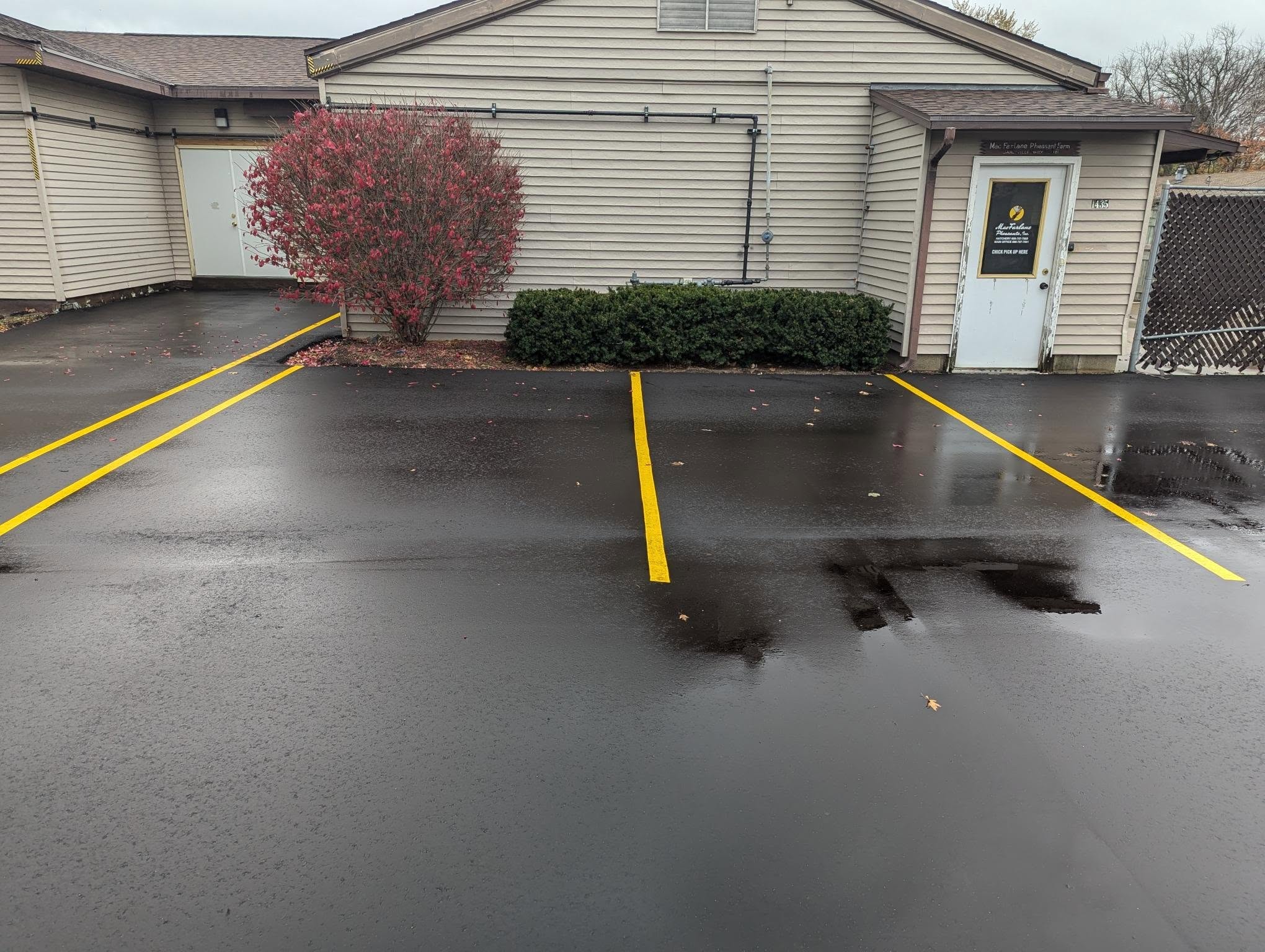
How We Raise Our Chicks For Sale
Our hatchery building is broken down into four key areas; eggs are trayed, set in incubators, hatched, and then sorted through in the shipping room. We also have pheasant eggs for sale.
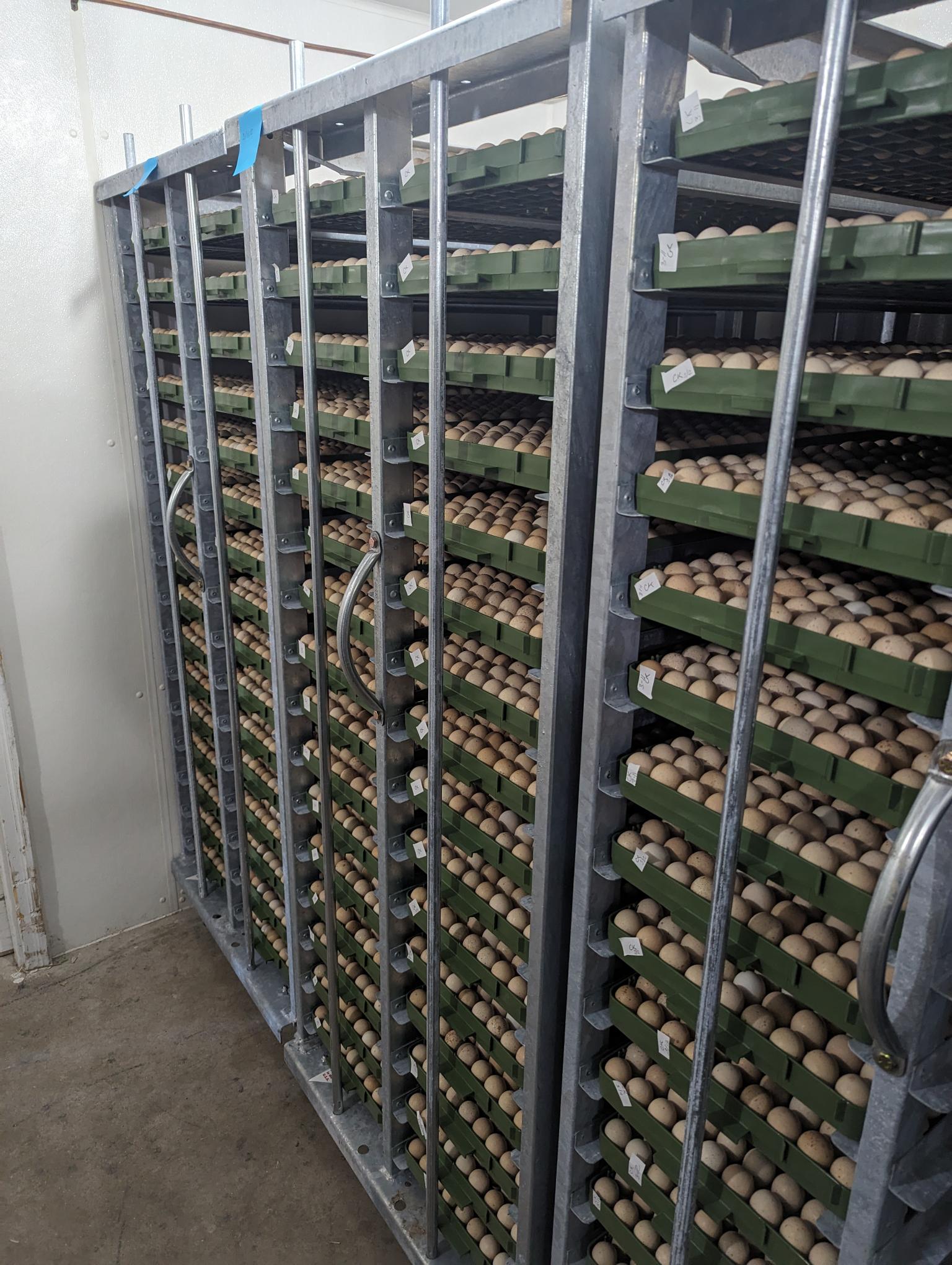
Egg Trays
Eggs are sorted and put onto trays.
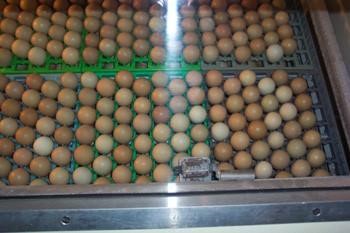
Pheasant Eggs
Cull eggs are taken out while setting. Cull eggs are either cracked, have calcium deposits, or have size problems.
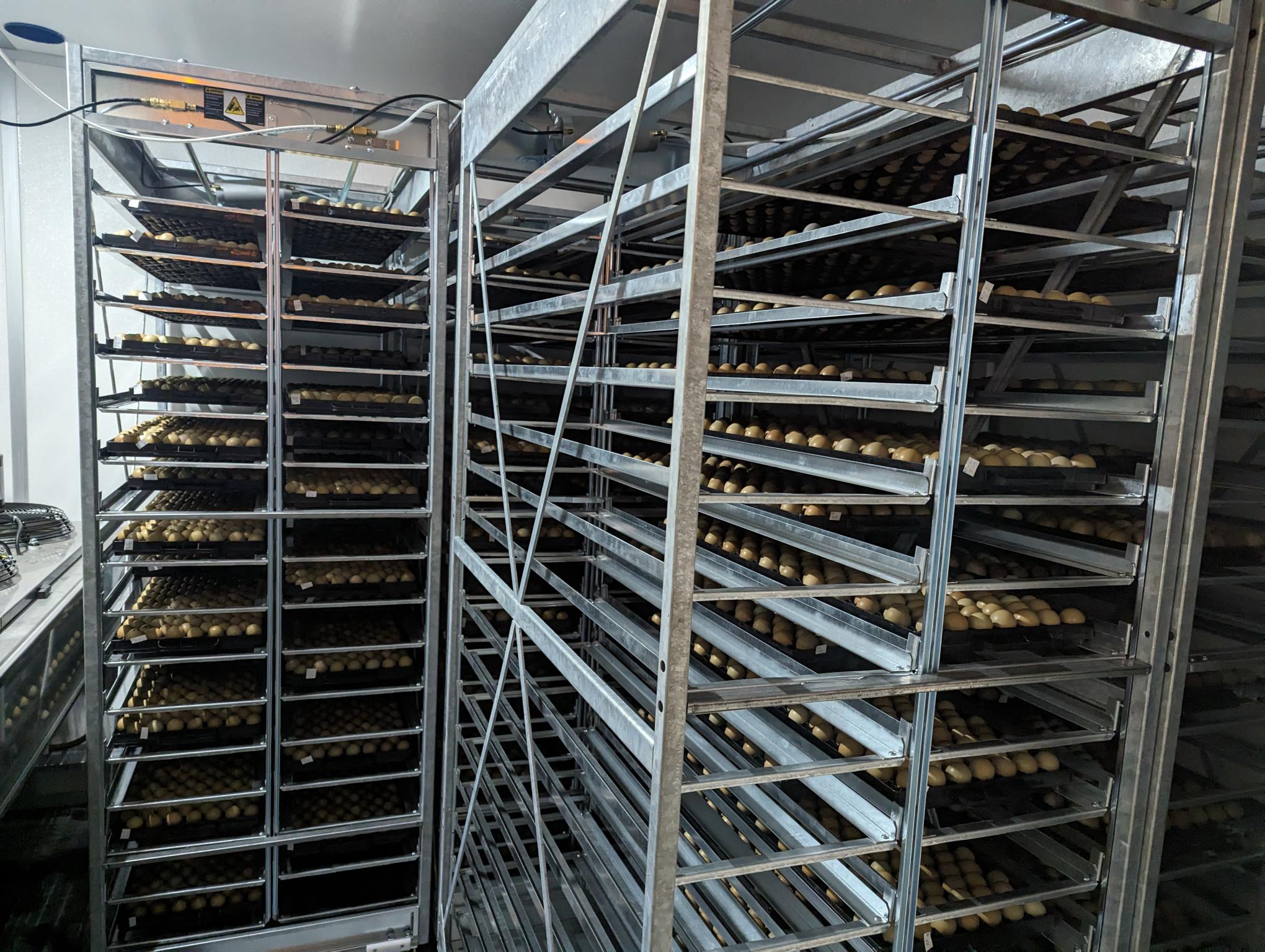
Hatchery
After the eggs are trayed, they are then placed in a cooler on a cart.
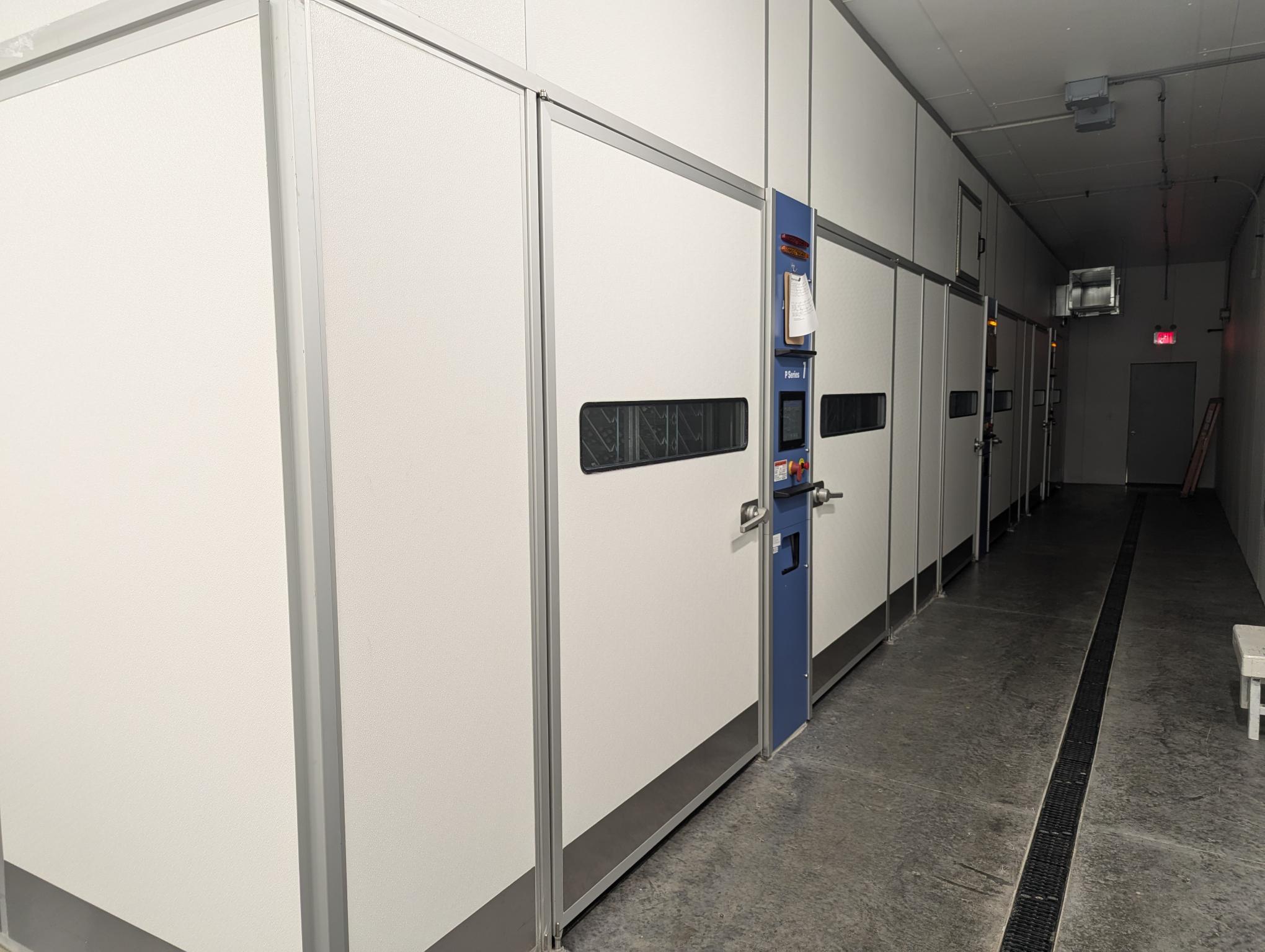
Incubator
Eggs are transferred from the incubators to the hatchers at about 20 days of age. Each hatcher has six dollies with 13 trays. These hatchers hold around 20,000 + eggs. The correct temperature and humidity are monitored closely manually and by alarm units.
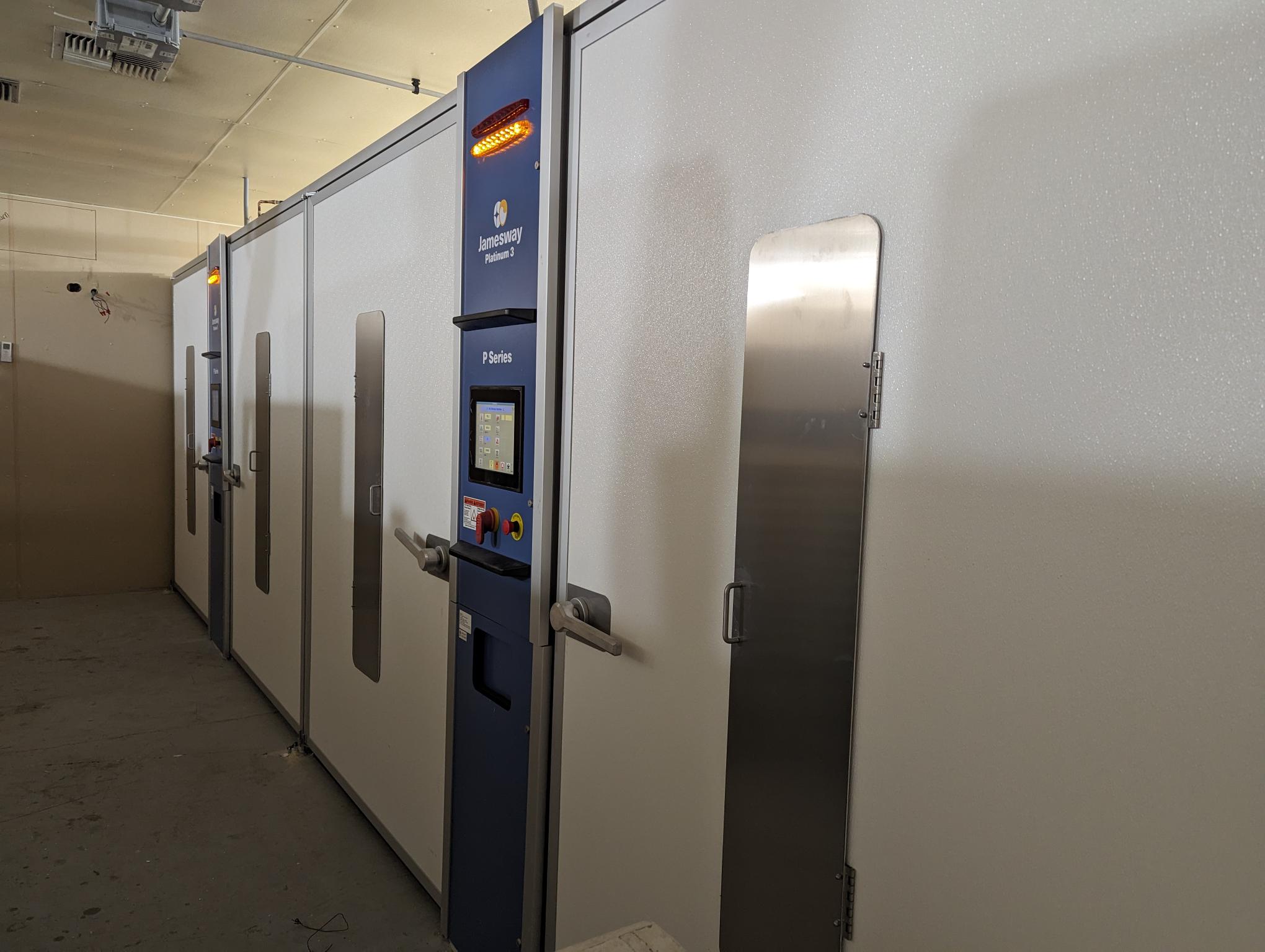
Hatcher
Eggs are transferred from the incubators to the hatchers at about 20 days of age. Each hatcher has six dollies with 13 trays. These hatchers hold around 20,000 + eggs. The correct temperature and humidity are monitored closely manually and by alarm units.
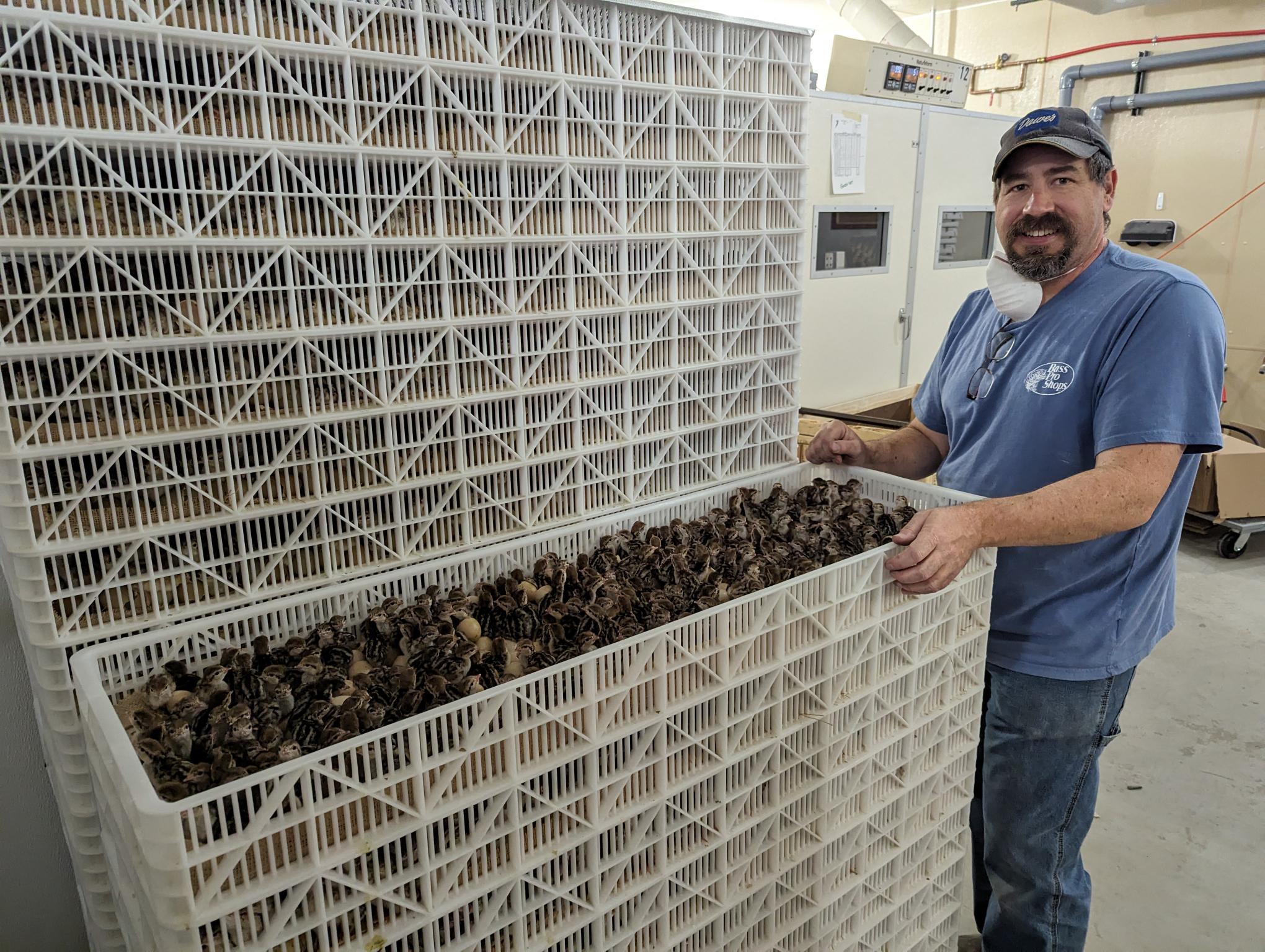
Hatched Chicks
The birds hatch and are left to dry. Wire guards on the trays help keep the birds in the trays.

Pheasant Chicks
Pheasants aren’t very large or active after hatching, they need some time to rest after using a large amount of energy to pip out of their shell. The ringneck chick is better colored to blend in with its surrounding and is about the same size as the white birds when hatched; however, the white bird will grow faster and bigger than the ringneck by a considerable amount.

Baby Chicks
Sometimes the chicks are separated according to their gender when being sent to the farm or to our customers. We look for the start of a waddle by gently pulling down on the skin under the lower jaw of the bird. Hens tend to have a dark band under the eye and no waddle present.

MacFarlane Chicks
Our chicks are shipped in cardboard boxes with a nutritional supplement that they can use while on their way to their destination. These boxes are well ventilated and are marked with brightly colored stickers to dictate how they are to be handled and what temperatures they should be left in.
See Virtual Tours
Breeder Farm | Brooding Facilities | Hatchery | Meet The Owner | Noss Farm | Pheasant Pens | River Road Farm

